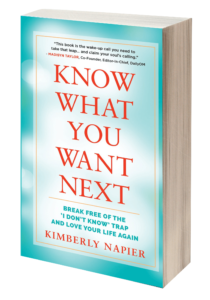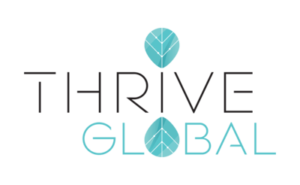According to an article published earlier this spring in The Journal of Clinical Psychiatry, nearly 70% of people on antidepressants don’t have a major depressive disorder. In some respects, this is astonishing to me, but then again, not really. When my husband died, my doctor immediately prescribed antidepressants to me without me asking. I was given Wellbutrin and Ativan – a “make you feel better” cocktail. At the moment my doctor wrote the prescription, I remember feeling even more like a victim – like I was powerless, like there was no way for me to start feeling better without taking drugs.
I trusted her, and so I tried them for a few weeks (which, I concede, prescribers would probably say is not long enough for fully effective results), but I felt worse. I felt numb, and honestly even more powerless as I was depending on a drug, instead of myself, to feel better. I understand the science, and know that those whose suffer from a chemical imbalance truly benefit from antidepressants. However, I certainly was not someone who needed them. Yet that was widely viewed as the easy solution — to medicate me more. I already felt numb and lifeless. What I really needed was to feel alive again.
Early on, after my husband’s death, I had met with a therapist who helped me immensely to process my emotions and begin healing, but now I was ready to feel good and move forward under my own steam, not under the power of pharmaceuticals. Following my instincts rather than a prescription pad, I started running more, discovered yoga and meditation, and ultimately explored principles of happiness through the study of positive psychology.
I discovered drugs are only one option. You can learn mindful and sustainable techniques to be more resilient and happier in life. You have choices.
Through positive psychology, I learned how to change my mindset and my negative thought patterns. I learned to proactively make choices that would cultivate more happiness and well-being in my life. This felt powerful! I was in control again. Yes, circumstances had turned my life upside down, but I had a choice in how I wanted to come out of it. The three tools that helped me the most to get my power back are all rooted in Positive Psychology, and scientifically proven to help you feel more in control and happier (source: Dr. Martin Seligman, ‘Flourish’).
1) Focus on what IS going well in my life.
Many people would look at my situation and say, “I don’t know how you get out of bed every day and go on.” But somehow I did. It was so easy to look at my life and see what was going wrong, and ruminate there. That creates a quick downward spiral to victimhood – one I did not want to be part of. Positive Psychology teaches us to train our brain to look at what IS working – to focus on what is RIGHT, and what is working WELL in our lives. The truth was that I had a lot going right. I had – and have — two amazing wonderful little girls who need me and love me and fill me with such joy. I was fortunate enough to have a home and security, and at the time I had an amazing job that I loved. If I made the conscious choice to focus on those areas, I could see that even in the most difficult times, some things were going right for me.
2) Count my blessings every day.
When things go wrong in our lives, we can easily dwell on all of the things that are unfair, and fall into an instant pity party. That can feel good for a moment, and then it can be hard to climb out of. Instead, when we focus on what we are grateful for, we begin to see even more good in our world. What we focus on is what we see, and ultimately what we will cultivate more of in our life. So why not direct your attention to the good stuff? In this process of counting my blessings, I started to appreciate all the little things I had taken for granted before, like the joy found in helping someone in need, or the sounds of nature when you walk outside your door. If you can start to create a ritual every day where you count three blessings in your life and give gratitude for them, you will not only start to feel better, but you will also change how you see things over time. You will train your brain to look at what is good in every situation.
3) Leverage my Signature Strengths.
According to Dr. Martin Seligman, commonly known as the founder of Positive Psychology, and the leading authority in the field of depression, “Signature strengths” refers to those character strengths that are most essential to who we are (you can find yours at www.viame.org), and leveraging them in difficult times can increase our resilience. First, just knowing that ‘I am equipped to handle this’ is empowering. Having a tool that enables you to persevere can help you not only survive, but thrive. My signature strength is ‘creativity.’ I am not, to my mind, a creative person in the traditional sense. I do not see myself as artistic. In this context, however, “Creativity is the process of using one’s originality to devise novel ways to positively contribute to one’s own life or the lives of others.” (Source: VIA Institute on Character). In essence, I saw that I am someone who thinks outside the box and does not just accept the status quo of doing things, but looks for a new way to tackle it. Just knowing this about myself gave me more courage and confidence to continue on my path of change. I am a rebel, and always have been. I never do things the conventional way. Wow, that is not such a bad thing after all. How might I use that strength of mine to be more resilient and help my daughters and me move through this hardship? I was already doing it. I had sought out a new way, an unconventional way to deal with grief, and I was modeling and teaching that to my girls.
One day as we were leaving a support group for grieving children, my girls both looked at me and said, in effect, “After being at that group, we feel worse, Mom. We don’t want to go back. We think we are doing better without this.” I knew after that I had to find a better way to help my girls and myself move forward. Traditional methods such as drugs, support groups and basic therapy were not the right solution to empower us to move forward. I sought out to study positive psychology, and learn how to feel happier and be more resilient every day.





